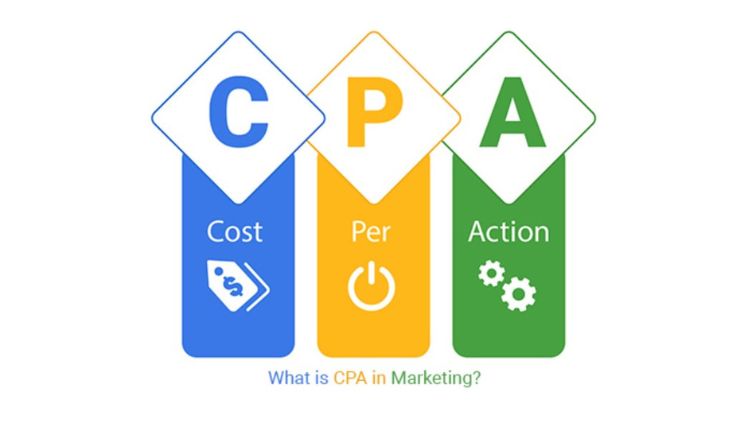CPA (Cost Per Action or Acquisition) Marketing is a popular online strategy. In this model, advertisers pay publishers whenever a specific action is taken by a customer. This action could be filling out a form, making a purchase, or completing another predefined activity. The commissions for such actions typically range between $1 and $22. This strategy has become a key method for businesses looking to grow and reach new audiences.
How CPA Marketing Agency Works
Driving Sales and Customers
CPA marketing connects advertisers with customers through specific actions. For example, when a person clicks on an ad, fills out a form, or makes a purchase, the publisher earns a commission. This model is designed to attract new customers while allowing advertisers to track the effectiveness of their ads.
The Importance of Research
Research plays a big role in CPA marketing. Advertisers use it to understand which sources bring in targeted traffic. Common sources include Facebook pages, keywords, YouTube videos, and partner links. By studying these channels, advertisers can improve their strategies and achieve better results.
A Low-Risk Model for Advertisers
One of the key advantages of CPA marketing is its low-risk nature for advertisers. Payments are made only when a specific action is completed, such as a sale or a lead. This ensures that advertisers don’t waste money on ads that don’t perform. Publishers, however, carry the risk of relying on conversion rates to earn revenue.
Why CPA Marketing Matters
Building Your Web Audience
Visibility is crucial for any business. CPA marketing can help build an online presence, whether locally, regionally, or internationally. Advertisers only pay when results are achieved. This ensures that they get value for their investment. Paid searches, blogs, and affiliate sites play a significant role in driving this visibility.
Fostering Strong Relationships with Publishers
CPA marketing relies on a good relationship between advertisers and publishers. Advertisers must choose publishers with secure and trustworthy sites to avoid fraudulent activities. Transparency about commission structures and startup fees helps maintain a positive partnership.
Targeting the Right Audience
Targeted traffic is the backbone of CPA marketing. By identifying their niche, advertisers can focus on audiences more likely to convert. For example, an advertiser selling gardening tools would benefit from advertising on sites visited by gardening enthusiasts. This targeted approach leads to better results and higher returns.
Steps to Get Started with CPA Marketing
- Understand Your Niche
Start by identifying your target audience. Who are they? What are their interests? Knowing this helps in selecting the right platforms to advertise on. - Choose a CPA Network
CPA networks act as intermediaries between advertisers and publishers. Popular networks include MaxBounty, PeerFly, and CPAlead. Research each network’s terms and choose one that aligns with your goals. - Create High-Quality Ads
Focus on making your ads appealing and clear. A strong call-to-action (CTA) can encourage customers to take the desired action. - Monitor and Optimize
Track the performance of your campaigns. Use analytics tools to measure conversions and identify areas for improvement. Adjust your strategies based on the data.
Benefits of CPA Marketing
- Cost-Effectiveness
Advertisers only pay for results. This makes CPA marketing more cost-efficient than other models like pay-per-click (PPC). - Measurable Results
Advertisers can track the success of their campaigns easily. This allows them to focus on strategies that deliver the best results. - Flexibility
CPA marketing works for a variety of industries. Whether it’s e-commerce, finance, or health, this model can adapt to different needs. - Scalable
As businesses grow, they can scale their CPA campaigns. This allows them to reach larger audiences without significantly increasing costs.
Challenges of CPA Marketing
- Finding Reliable Publishers
Not all publishers deliver high-quality traffic. Advertisers must vet publishers carefully to avoid wasting money. - High Startup Costs
While CPA marketing is cost-effective in the long run, initial costs can be higher than other methods. - Fraud Risks
Fraudulent activities, such as fake leads, can hurt advertisers. Choosing secure and verified publishers is crucial.
Real-Life Case Study: A Small Business Success
A small online clothing store wanted to grow its audience and increase sales. They partnered with a CPA network and targeted fashion bloggers and Instagram influencers. By offering a commission of $10 per sale, they attracted high-quality traffic. Within three months, their sales increased by 40%, and their customer base grew significantly. This shows how effective CPA Marketing Agency can be when executed properly.
FAQs About CPA Marketing
- How is CPA different from other marketing models?
CPA focuses on specific actions like sales or leads. Unlike PPC (pay-per-click), where advertisers pay for clicks regardless of outcomes, CPA ensures payment only for measurable results. - Can small businesses benefit from CPA marketing?
Yes, CPA marketing is suitable for businesses of all sizes. Small businesses can use it to grow their audience and drive sales without significant upfront investment.
3. How can I avoid fraud in CPA marketing?
Work with reputable CPA networks and publishers. Use tools to track leads and verify their authenticity. Establish clear agreements to avoid disputes.

